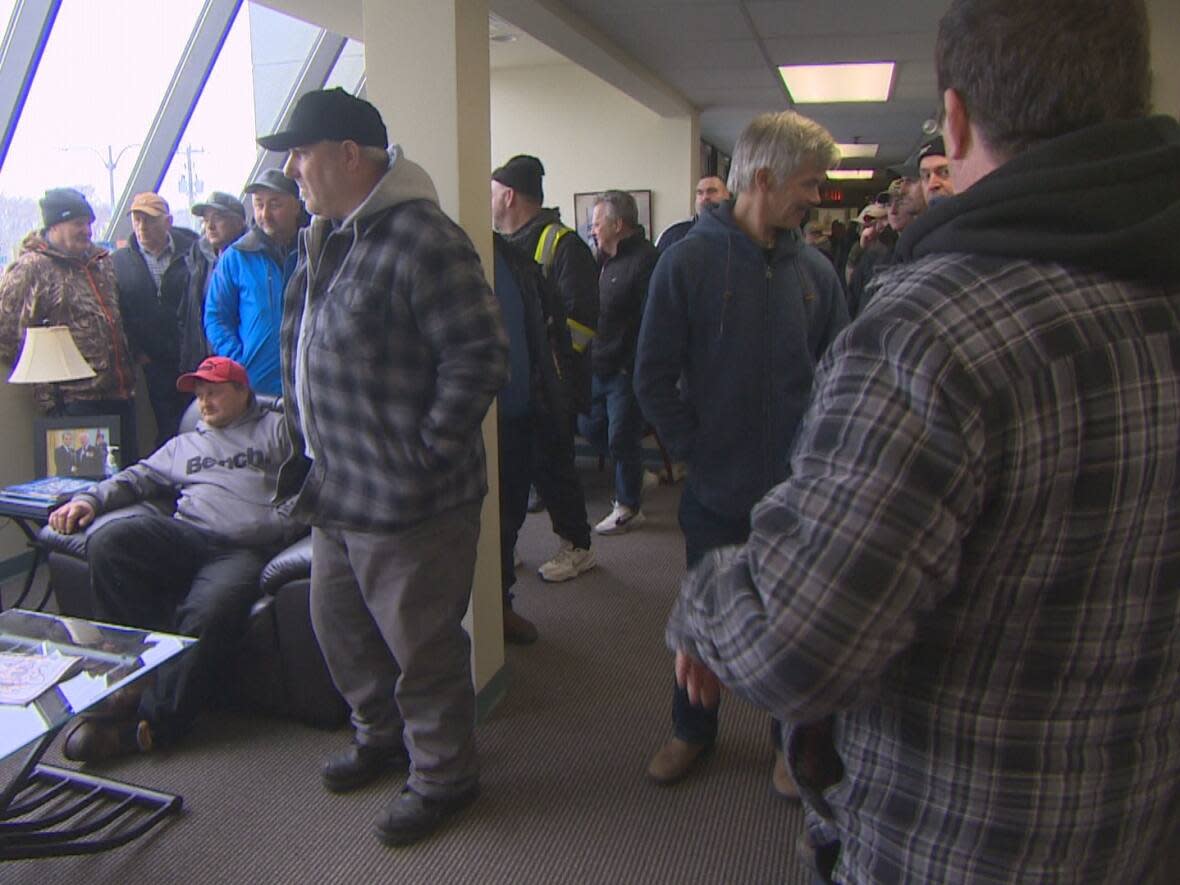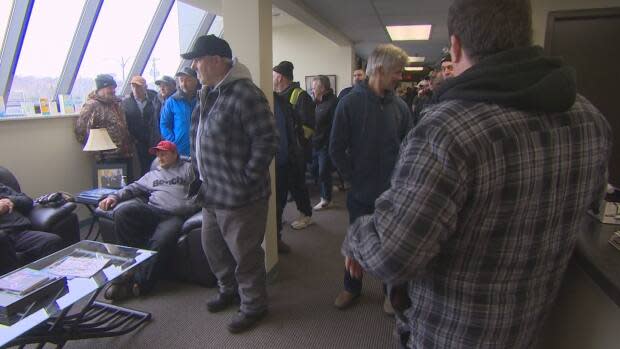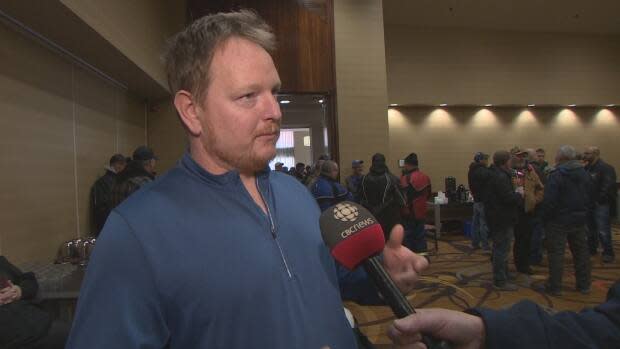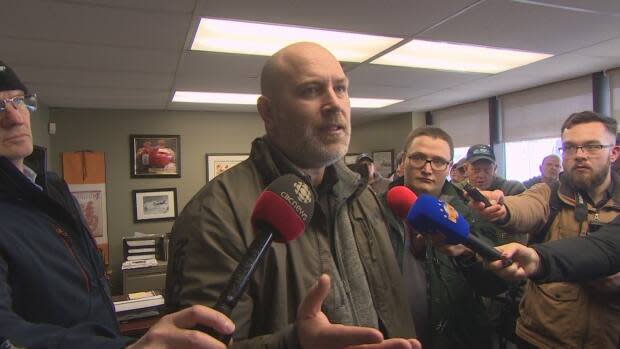Snow crab fishermen protest quota allocations on first day of price-setting


About 100 snow crab fishermen descended Monday on a St. John's hotel, where officials had begun setting crab prices for the season, to protest a management system and quotas they say need an overhaul.
The protest, at the Sheraton in downtown St. John's, centred on a new precautionary approach designed to protect stocks, implemented in December by the Department of Fisheries and Oceans, which manages inshore and offshore crab stocks differently.
The fishermen work in Zone 3L, ranging from Conception Bay to St. Mary's Bay as far as Bonavista Bay, home to more than 500 inshore fishing enterprises.
Bay Bulls fisherman Jason Sullivan says the change leaves them with less to catch.
"These guys are at 30 per cent of their original quotas, and they need an increase," Sullivan said Monday. "They're catching their quotas in one single day.… They're not asking for an increase in the resource when the resource can't handle it. They're asking for their fair share."
DFO's new approach involves creating two separate biomasses, the total weight of a given species of fish in one area at a specific time, in 3L — one for the inshore harvest and one for the offshore harvest.
The change means inshore harvesters are fishing crab at the upper limit of their biomass, said Sullivan, who added that offshore harvesters are only harvesting about 25 per cent of their biomass. The limit reduction means a loss of income for inshore harvesters, which Sullivan warned could lead to a loss of crew or eligibility for employment insurance.
The fishermen called for more support from their union, Fish Food & Allied Workers, and demanded the federal government return 3L to one biomass — which would allow for a greater share of what they say is a healthy resource.
"If you joined the two areas into one big biomass like it should be, and you gave the inshore areas back about 75 per cent of their historical high like the area that we're fishing next to, the overall removal rate would be about 28.5 per cent. So we'd be well within that cautious limit," he said.
"This is a swipe of a pen and that would fix this. This isn't reinventing the wheel."

The Department of Fisheries and Oceans defended the precautionary approach in a statement to CBC News on Monday, saying it was developed through peer-reviewed science and provides a level of stability and predictability for setting quotas.
Fishermen push for meeting with MP
After a meeting between FFAW president Greg Pretty, local DFO officials and the federal government, most of the harvesters moved the protest to St. John's South-Mount Pearl MP Seamus O'Regan's constituency office looking for answers from their federal representative.
"If we got to go to Ottawa on this, we'll select people and go to Ottawa," Pretty told the fishermen. "It's extremely important that they reverse their decision and listen to us as to how you [and] your quotas are handled in the future."
After a phone conversation with O'Regan's assistant, FFAW secretary-treasurer Jason Spingle told fishermen their concerns were heard by the minister and DFO.

"He said, 'Tell them we're on it. Tell the harvesters we're on it,'" Spingle told the room of fishermen, adding they had scheduled a meeting with O'Regan on Monday evening. "I guess we'll see where that goes."
Sullivan says Monday's protest is only the beginning. He said he wants collective bargaining and price setting to be put on hold until officials reach a resolution and increase the quota.
"This isn't going away," he said. "People are literally going to be bankrupt."

